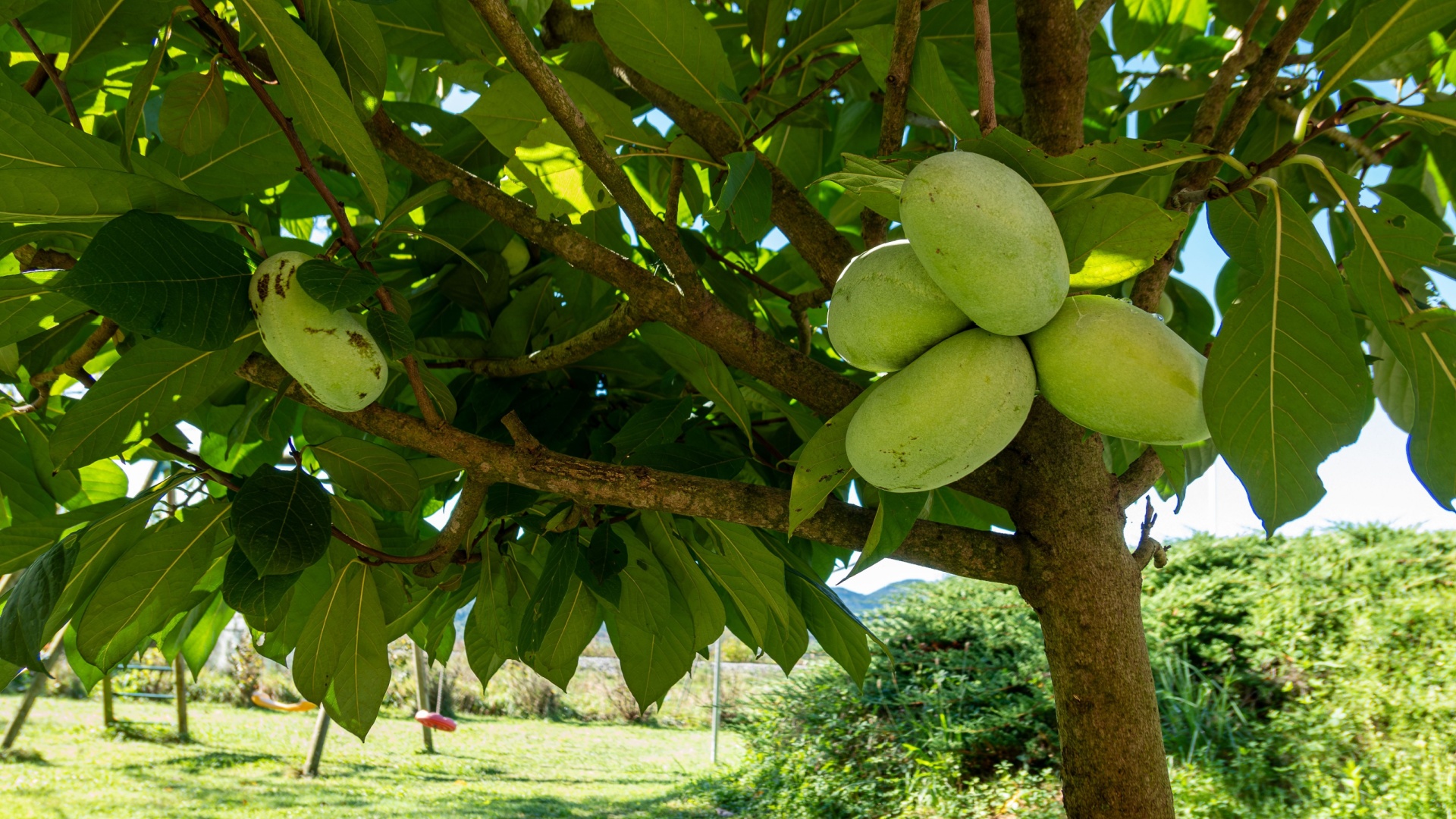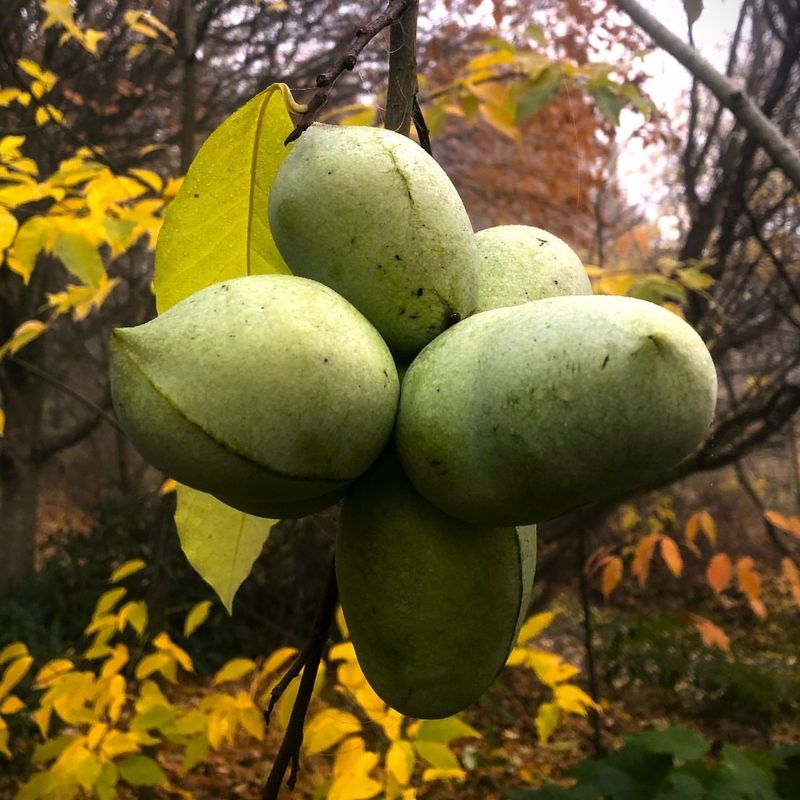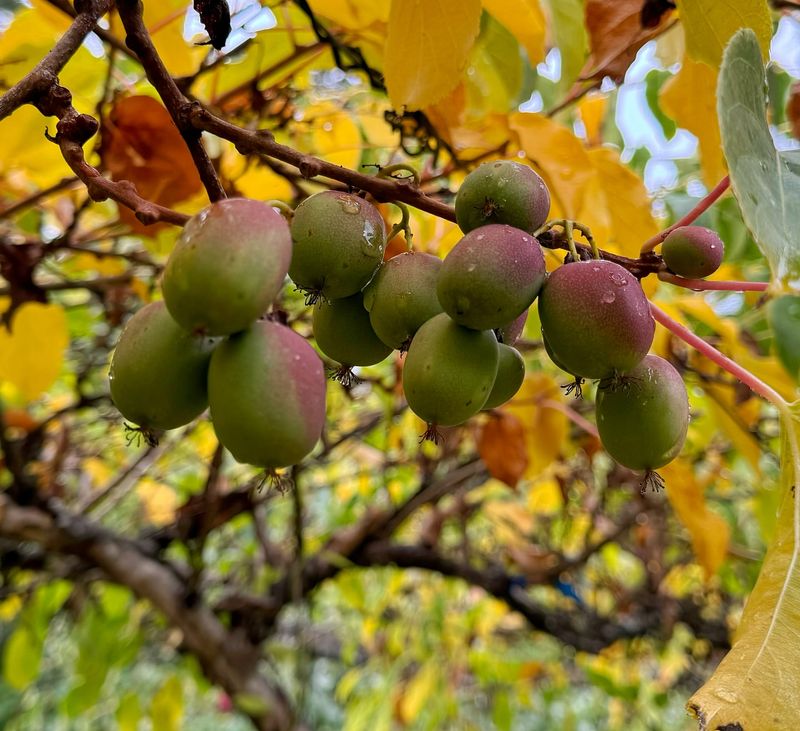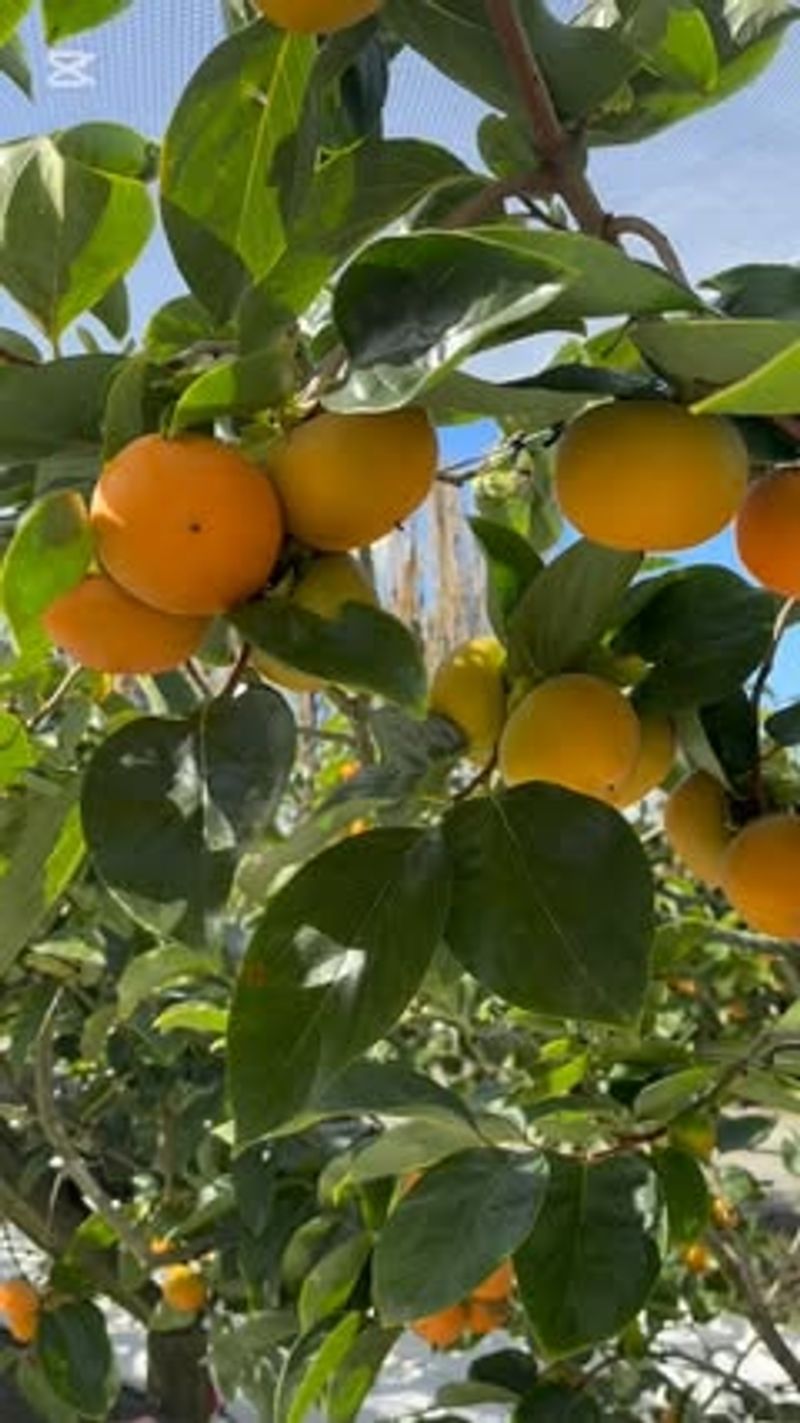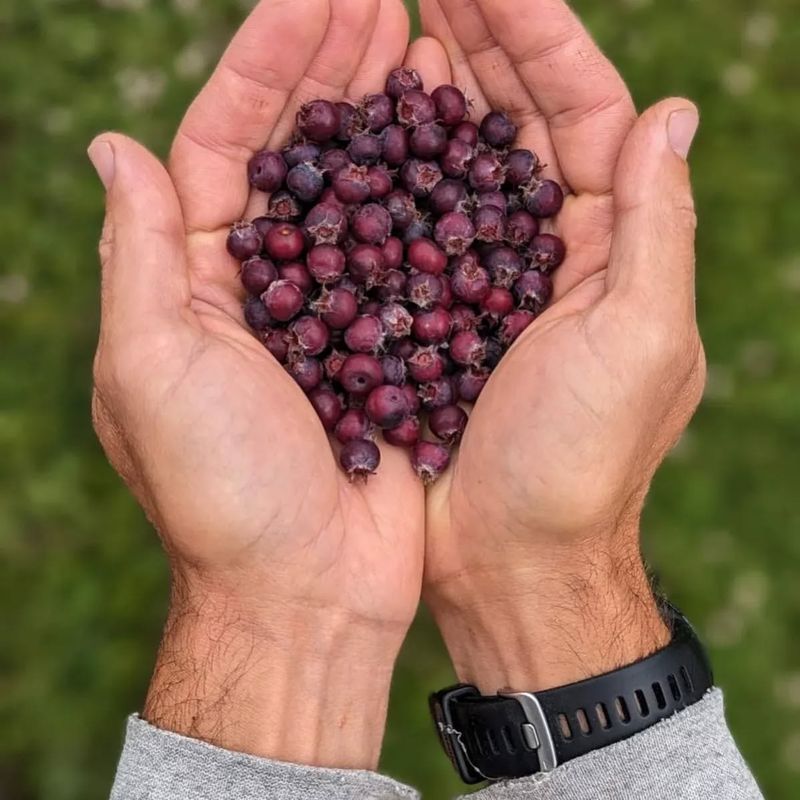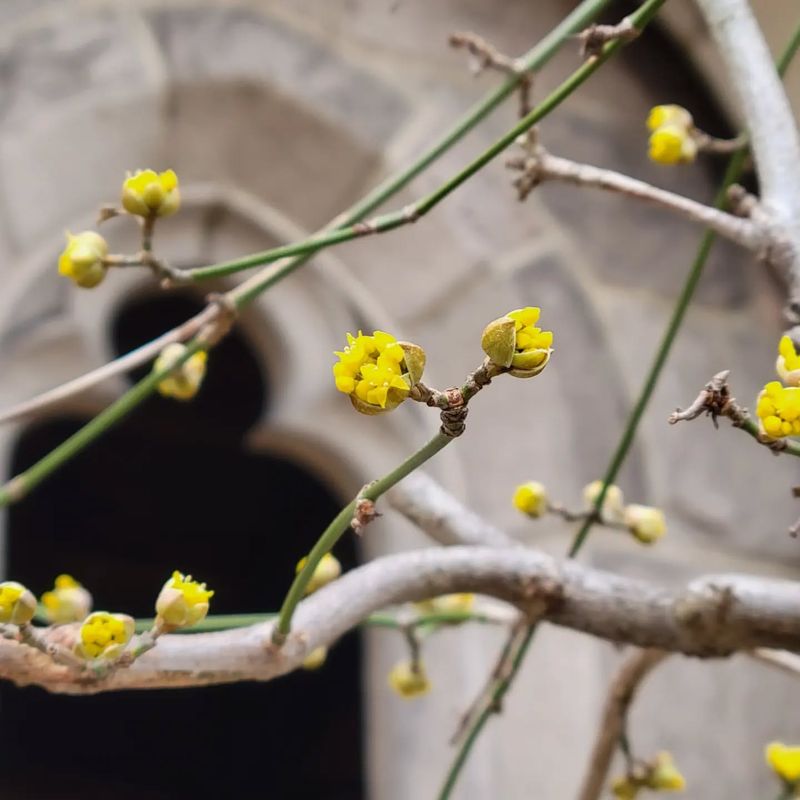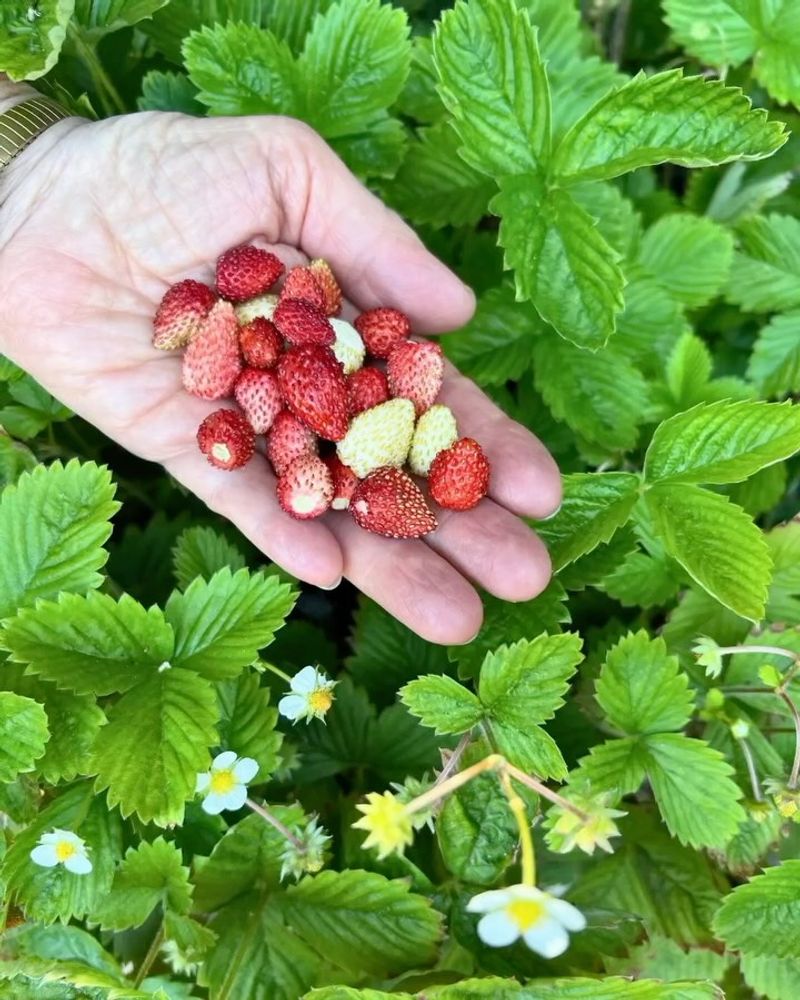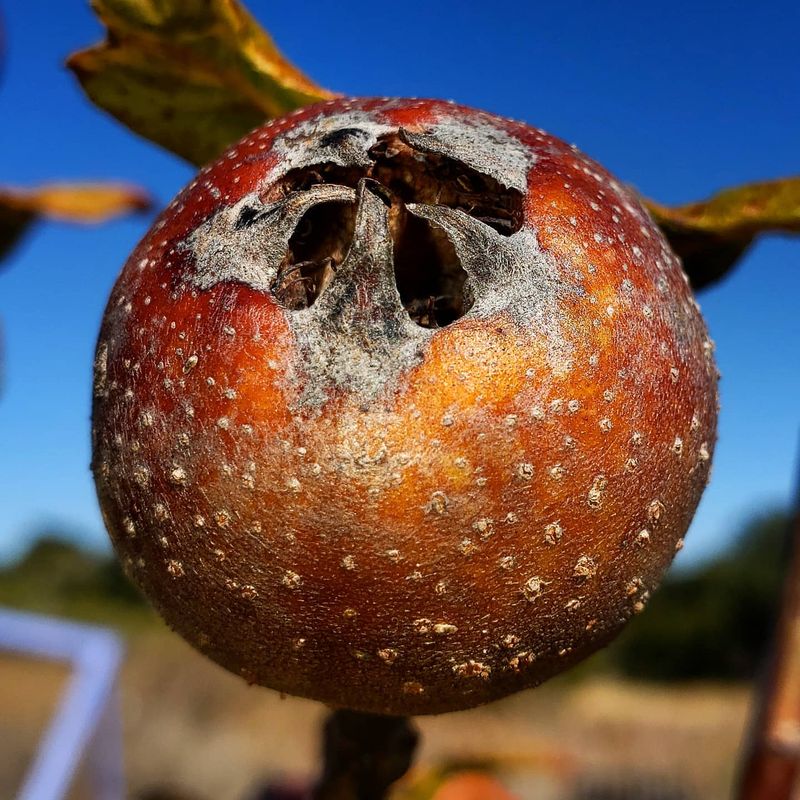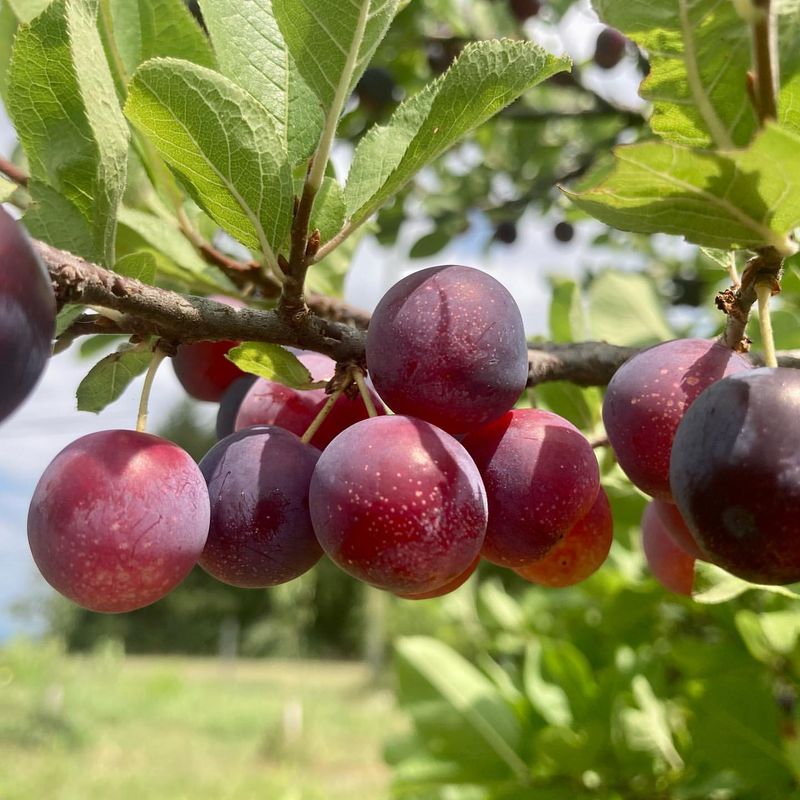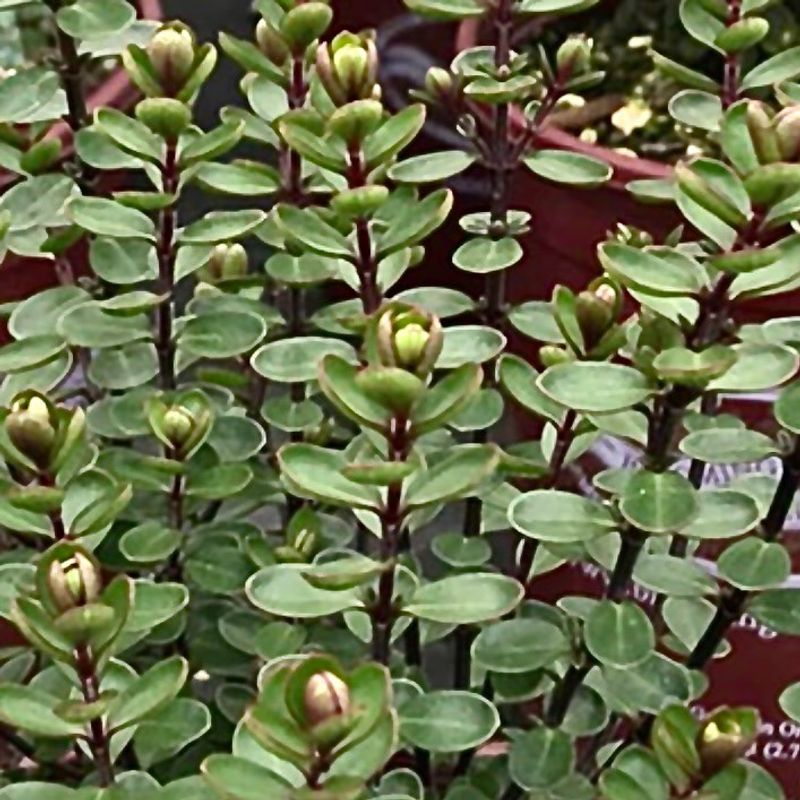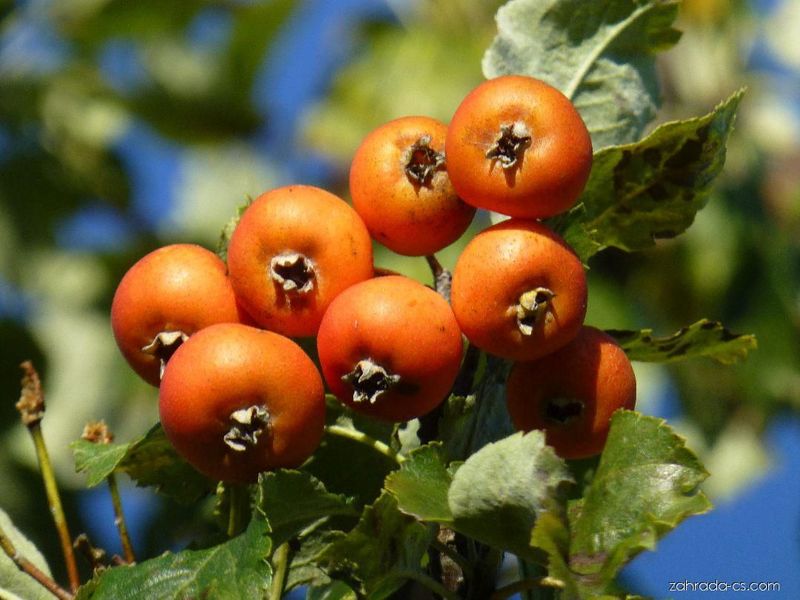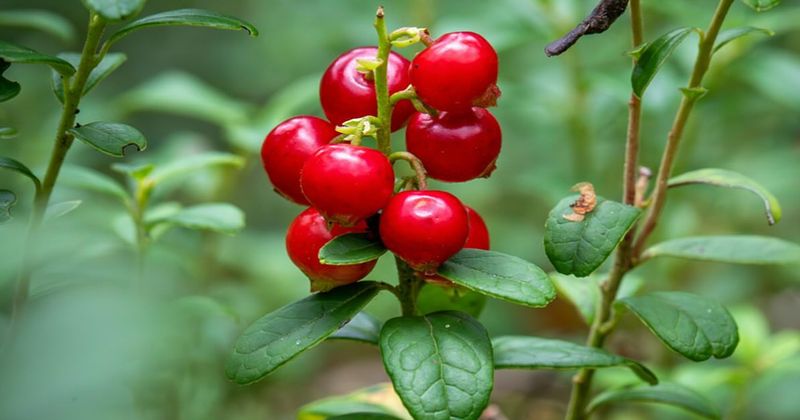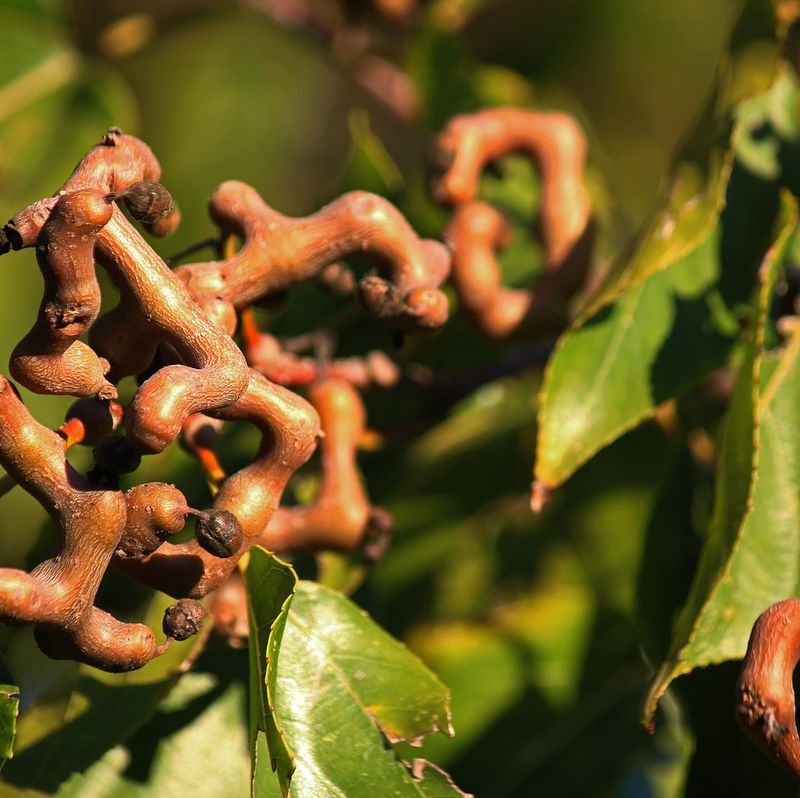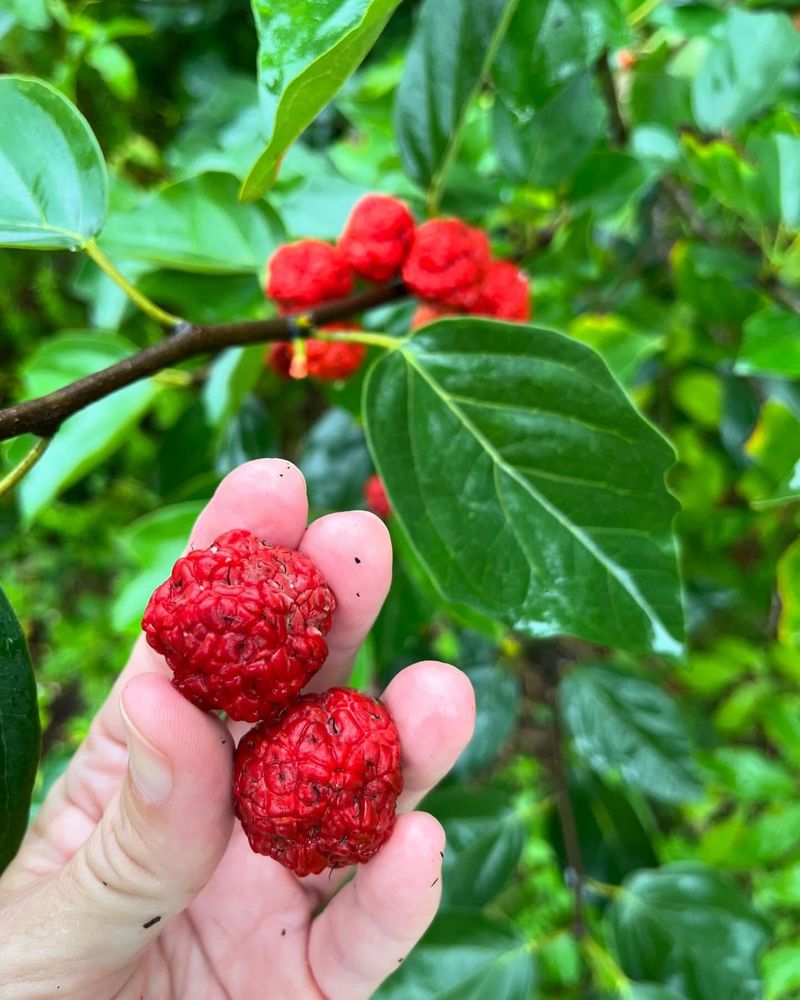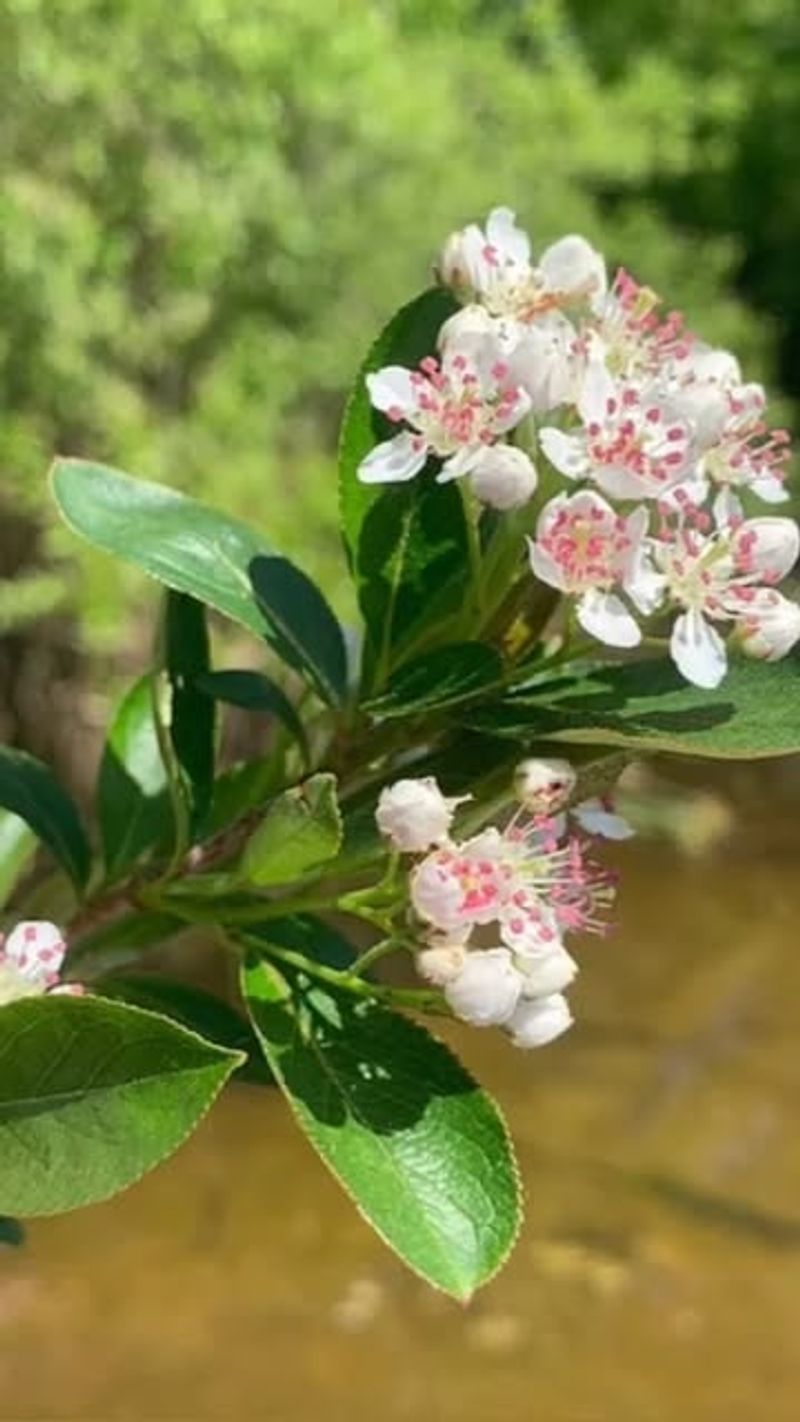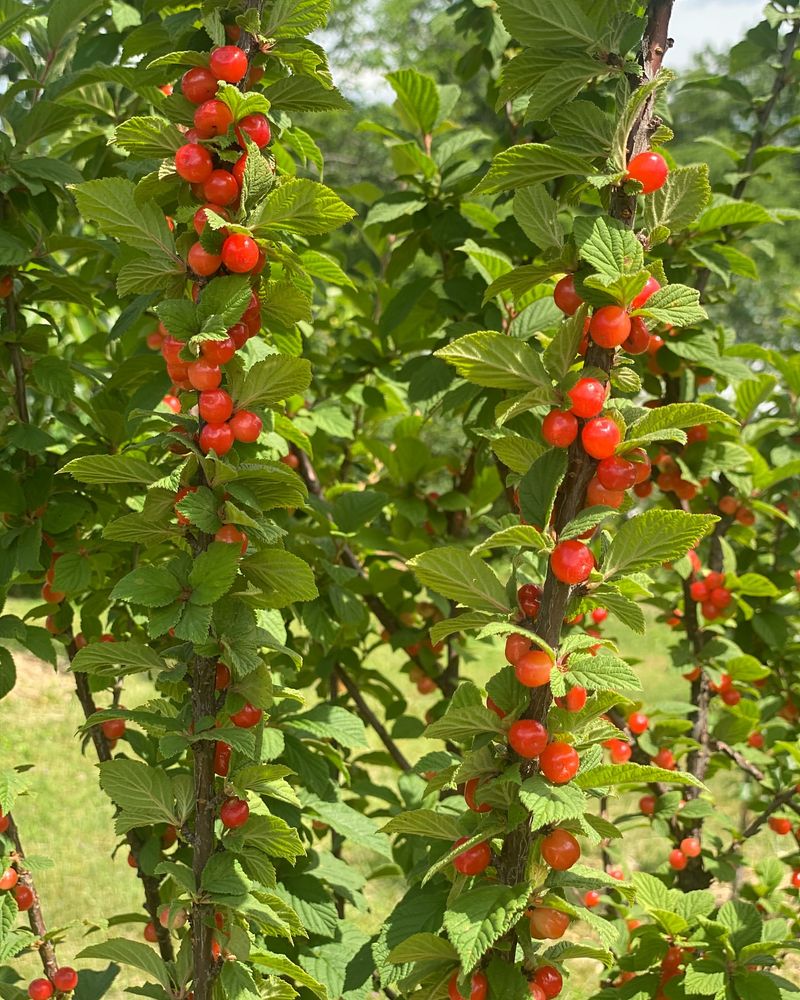You don’t need acres of land to grow something truly unique. Even in a small New Jersey backyard, it’s possible to cultivate rare and unexpected fruits—many of which thrive in the state’s diverse climate.
From tropical-looking treats to forgotten heirlooms, these 15 surprising fruits add flavor and fun to your garden, no orchard required.
1. Pawpaw: North America’s Forgotten Tropical Fruit
Native to eastern United States, pawpaws produce custard-like fruit with flavors reminiscent of banana, mango, and vanilla. They grow naturally as understory trees in New Jersey’s woodlands. Plant two different varieties for proper pollination.
Pawpaws prefer dappled sunlight when young but can handle full sun once established. These small trees reach just 15-20 feet, making them perfect for modest yards.
2. Hardy Kiwi: Grape-Sized Smooth-Skinned Treasures
Unlike their fuzzy supermarket cousins, hardy kiwis are bite-sized with smooth, edible skin. The sweet emerald flesh packs more vitamin C than oranges while the vines add gorgeous foliage to any garden. Growing on vigorous vines, hardy kiwis need strong support structures.
Plant male and female vines for fruit production. These cold-hardy plants survive New Jersey winters beautifully, though spring flowers may need protection from late frosts.
3. Persimmon: Honey-Sweet Autumn Jewels
American persimmons naturally grow in parts of New Jersey, producing small orange fruits that ripen after frost. The Asian varieties offer larger fruits and more compact growth habits ideal for smaller yards. Patience pays off with persimmons – the fruits must fully ripen until soft to avoid their astringent pucker.
Many varieties are self-pollinating, meaning you’ll only need one tree for abundant harvests. Their brilliant fall foliage adds seasonal beauty to your landscape.
4. Juneberry (Serviceberry): Spring’s First Wild Treat
Often overlooked, Juneberries produce blueberry-like fruits with almond undertones and a hint of cherry. Native to our region, these multi-season beauties offer white spring flowers, summer fruits, and fiery fall colors. Juneberries grow as either shrubs or small trees, reaching 15-25 feet.
They thrive in partial shade to full sun and adapt to most soil conditions. Birds love the fruits too, so be ready to share or cover with netting when berries begin ripening.
5. Cornelian Cherry: Ancient Fruit Making a Comeback
Not actually a cherry but a type of dogwood, this early-blooming small tree produces tart ruby-red fruits perfect for jams and syrups. Yellow flowers appear in February or March, bringing color to your yard before most plants wake up. Cornelian cherries grow slowly to about 15 feet tall and wide.
The glossy fruits ripen in late summer, turning from yellow to red when ready to harvest. Extremely cold-hardy and disease-resistant, they’re perfect low-maintenance additions to New Jersey landscapes.
6. Alpine Strawberry: Tiny Berries With Enormous Flavor
Unlike their grocery store relatives, alpine strawberries produce small, intensely flavored berries throughout the growing season. Their compact growth habit makes them perfect for containers, hanging baskets, or garden borders. Alpine strawberries grow in neat mounds about 8-10 inches tall.
They prefer partial shade in New Jersey’s hot summers and produce without runners, staying exactly where you plant them. The aromatic fruits have been described as tasting like strawberry candy with floral notes.
7. Medlar: Medieval Fruit for Modern Gardens
Popular centuries ago but nearly forgotten today, medlars produce unusual fruits that ripen after the first frost. The brown fruits with their open calyx end (called “open-arse” in Shakespeare’s time) soften to a cinnamon-applesauce consistency. Medlar trees stay small, reaching just 8-15 feet tall with attractive gnarly branches and white spring flowers.
They’re self-fertile and extremely disease-resistant. The unique fruits must be “bletted” (allowed to soften after harvest) before eating, developing a rich flavor like spiced applesauce.
8. Beach Plum: Jersey Shore Native Bearing Prized Fruits
Found naturally along coastal dunes, beach plums produce small purple fruits coveted for their intense flavor in jams and jellies. These tough native shrubs bring a piece of the Jersey Shore to your backyard. Beach plums grow 6-8 feet tall with a similar spread.
Their white spring flowers attract pollinators while their dense growth makes them excellent privacy screens. Extremely salt-tolerant and drought-resistant once established, they thrive in poor sandy soils where other plants struggle.
9. Goumi: Nitrogen-Fixing Superfruit From Asia
Goumi shrubs produce tart-sweet red berries speckled with silver that taste like sour cherries with hints of apple. Rich in lycopene and other antioxidants, these underappreciated fruits offer both nutrition and beauty. Beyond producing delicious berries, goumi plants improve your soil by fixing nitrogen.
Their silvery foliage creates stunning contrast in garden settings. Growing just 6 feet tall and wide, they fit easily in smaller yards and start producing fruit within 2-3 years after planting.
10. Shipova: Rare Hybrid Combining Pear and Mountain Ash
One of the rarest fruits you can grow, shipova combines the sweetness of pears with the unique flavor of mountain ash berries. The yellow-orange fruits taste like spiced pear butter with notes of almond. Shipova trees stay manageably small at 10-15 feet tall.
Their silvery foliage and white spring flowers add ornamental value even before fruits appear. Extremely cold-hardy and disease-resistant, they require minimal spraying, making them ideal for organic New Jersey gardens.
11. Lingonberry: Scandinavian Superfood in Ground-Hugging Plants
Imagine growing cranberry’s sweeter Scandinavian cousin in your garden! Lingonberries grow on tiny evergreen shrubs just 12-18 inches tall, making them perfect for containers or as ground covers in acid soil gardens.
These tart red berries appear twice yearly in many climates – once in summer and again in fall. The glossy evergreen leaves provide year-round interest. Plant several for better pollination. They pair beautifully with blueberries, sharing similar soil and sunlight requirements.
12. Japanese Raisin Tree: Living Raisin Factory
Don’t let the name fool you – Japanese raisin trees produce unusual fruits with stems that swell into sweet, raisin-flavored structures. The fruits themselves are also edible with a unique apple-pear taste. Growing to about 20-30 feet, these trees can be kept smaller through pruning.
The large tropical-looking leaves create dramatic shade patterns. Cold-hardy to zone 4, they easily handle New Jersey winters while bringing exotic flair to your landscape. The dried fruit stems have been used medicinally for centuries.
13. Che Fruit: Ancient Chinese Berry With Fig-Like Flavor
Sometimes called Chinese mulberry, che produces red fruits resembling stubby caterpillars that taste like watermelon candy with fig undertones. The trees grow quickly but stay manageable through pruning. Che trees reach 20-25 feet if left unpruned but can be maintained at 10-15 feet for easier harvesting.
Unlike mulberries, they don’t stain patios or clothing. Self-fertile varieties mean you’ll only need one tree for abundant harvests of these unique fruits that aren’t available commercially.
14. Aronia (Chokeberry): Native Superfruit Packed With Antioxidants
Native to eastern North America, aronia shrubs produce deep purple-black berries containing more antioxidants than almost any other fruit. Though astringent when raw, they transform into delicious juices, jams, and wines.
Aronia bushes grow 3-6 feet tall and wide with glossy green leaves that turn brilliant red in fall. White spring flowers attract pollinators while the berries feed wildlife. These low-maintenance native plants resist pests and diseases naturally and tolerate wet soils that challenge other fruits.
15. Nanking Cherry: Prolific Bearer of Ruby Jewels
Nanking cherries produce abundant small red fruits on graceful shrubs just 6-10 feet tall. The tart-sweet cherries make exceptional preserves while providing visual interest with showy white spring flowers and exfoliating bark.
Unlike standard cherry trees, Nanking cherries resist common diseases and produce without complicated pruning. Plant several for cross-pollination and better harvests. The dense growth habit makes them excellent as informal hedges or privacy screens in New Jersey gardens, with fruits ripening in early summer.

